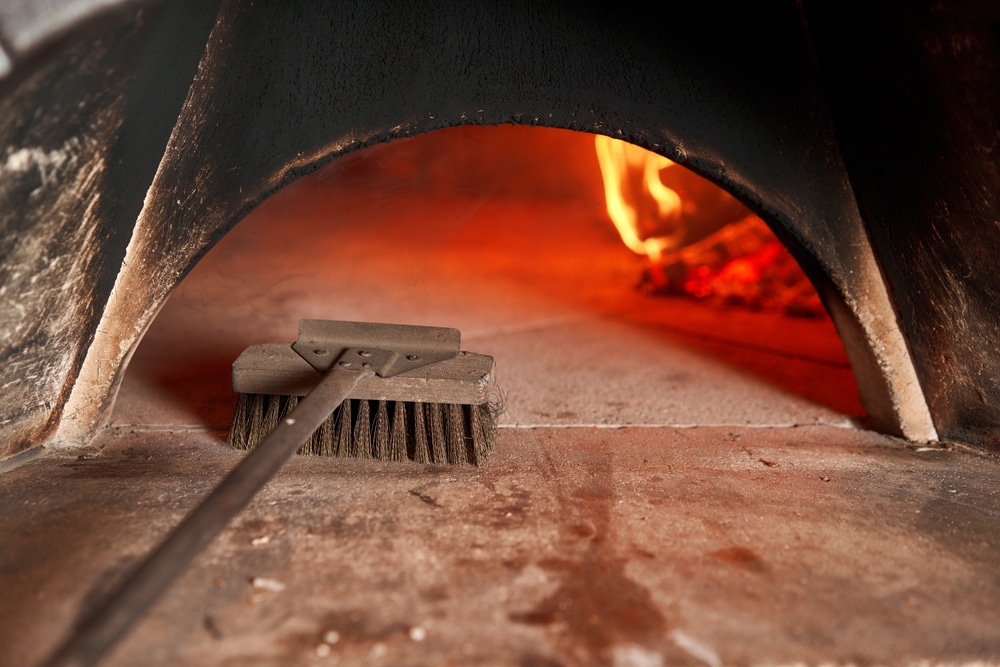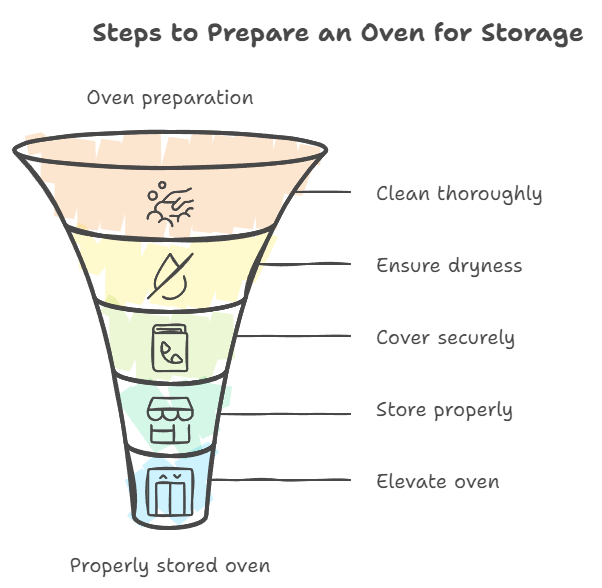The New Ultimate Guide to Outdoor Pizza Oven Maintenance

Imagine the aroma of freshly baked pizza wafting through your backyard, the crackling of wood in your outdoor pizza oven, and the anticipation of that first crispy bite. Proper outdoor pizza oven maintenance is crucial to keeping these delightful experiences coming. This comprehensive guide will walk you through everything you need to know about keeping your pizza oven in top shape, ensuring countless perfect pies for years to come.
Why is Outdoor Pizza Oven Maintenance Important?
Regular maintenance of your outdoor pizza oven isn’t just about cleanliness – it’s about preserving the quality of your pizzas, extending the life of your oven, and ensuring safe operation. A well-maintained oven heats more efficiently, cooks more evenly, and provides a better overall cooking experience. Let’s dive into the essential aspects of pizza oven care.
How Often Should You Clean Your Outdoor Pizza Oven?
Cleaning frequency depends on how often you use your oven, but generally, a thorough cleaning every 20 uses or so is a good rule of thumb. However, basic cleaning should be done after each use to prevent buildup and maintain optimal performance.
Post-Cooking Cleanup
After each use, follow these simple steps:
- Allow the oven to cool completely
- Sweep out ash and debris with a brush
- Wipe down the exterior with a damp cloth
Deep Cleaning Process
For a more thorough clean:
- Remove all ash and debris
- Scrub the cooking surface with a wire brush
- Use a damp cloth to wipe down the interior
- Clean the chimney and flue if applicable
Remember, never use chemicals or soap inside your pizza oven. They can affect the taste of your food and damage the oven’s surface.
What Tools Do You Need for Pizza Oven Maintenance?

Having the right tools makes maintenance easier and more effective. Here’s what you’ll need:
- Wire brush for cleaning the cooking surface
- Ash rake for removing debris
- Soft-bristled brush for exterior cleaning
- Heat-resistant gloves for safety
- Tarp or cover for protection when not in use
Investing in quality tools will make the maintenance process smoother and help preserve your oven’s condition.
How Do You Prevent Rust in Your Outdoor Pizza Oven?
Rust can be a major issue for outdoor pizza ovens, especially in humid climates. Here are some tips to keep rust at bay:
- Keep your oven dry when not in use
- Use a high-quality cover to protect from moisture
- Apply a thin layer of cooking oil to metal parts after cleaning
- Regularly inspect for any signs of rust and address immediately
What’s the Best Way to Store Your Pizza Oven in the Off-Season?
Proper storage is key to maintaining your pizza oven during periods of non-use:
- Clean thoroughly before storage
- Ensure the oven is completely dry
- Cover with a weatherproof, breathable cover
- Store in a dry location if possible
- Elevate the oven to prevent ground moisture contact

How Can You Maintain the Cooking Surface of Your Pizza Oven?
The cooking surface is where the magic happens, so it’s crucial to keep it in good condition:
- Brush off debris after each use
- Avoid using water on the cooking surface
- Season the surface periodically with olive oil
- Allow the oven to heat up gradually to prevent cracking
What Should You Do If You Notice Cracks in Your Pizza Oven?
Small cracks are common and often don’t affect performance. However, larger cracks need attention:
- Assess the size and location of the crack
- For hairline cracks, monitor but don’t intervene
- For larger cracks, consult the manufacturer or a professional
- Use high-temperature mortar for repairs if necessary
How Do You Maintain Different Types of Pizza Ovens?
Maintenance can vary depending on the type of pizza oven you have:
Wood-Fired Ovens
- Remove ash after each use
- Check for creosote buildup in the chimney
- Inspect the firebricks regularly
Gas Pizza Ovens
- Clean burners and check gas connections
- Inspect ignition system regularly
- Keep vents clear of debris
Portable Pizza Ovens
- Clean thoroughly after each use
- Check for any loose parts before storage
- Protect from the elements when not in use
What Are Some Common Pizza Oven Maintenance Mistakes to Avoid?
Steering clear of these errors will help keep your oven in prime condition:
- Using water to clean a hot oven (can cause cracking)
- Neglecting to clean the chimney (can lead to poor ventilation)
- Ignoring small issues (can turn into bigger problems)
- Using harsh chemicals for cleaning (can affect food taste and oven integrity)
How Can You Extend the Life of Your Outdoor Pizza Oven?
To ensure your pizza oven serves you well for years to come:
- Follow a regular maintenance schedule
- Use high-quality fuel (for wood-fired ovens)
- Protect from extreme weather conditions
- Address any issues promptly
- Use the oven regularly to prevent moisture buildup
Maintaining your outdoor pizza oven doesn’t have to be a chore. With regular care and attention, you can keep your oven in excellent condition, ensuring delicious pizzas for years. Remember, a well-maintained pizza oven is not just about cleanliness – it’s about preserving the heart of outdoor entertaining and the joy of creating perfect pizzas in your backyard.
By following this guide, you’ll be well-equipped to handle all aspects of pizza oven maintenance, from routine cleaning to long-term care. So fire up that oven, and enjoy the fruits of your labor – both in maintenance and pizza-making!
FAQ
How long does it take to heat up an outdoor pizza oven?
Most outdoor pizza ovens take 30-45 minutes to reach optimal cooking temperature. However, this can vary depending on the size and type of oven and the ambient temperature.
Can I use my outdoor pizza oven in the rain?
While many pizza ovens are designed to withstand some weather, avoiding using them in heavy rain is best. Water can damage the oven and affect cooking performance. Always cover the oven when not in use to protect it from the elements.
How often should I replace the bricks in my pizza oven?
With proper maintenance, pizza oven bricks can last for many years. However, if you notice significant cracking or crumbling, it may be time to replace them. Consult with the manufacturer or a professional for specific guidance.


